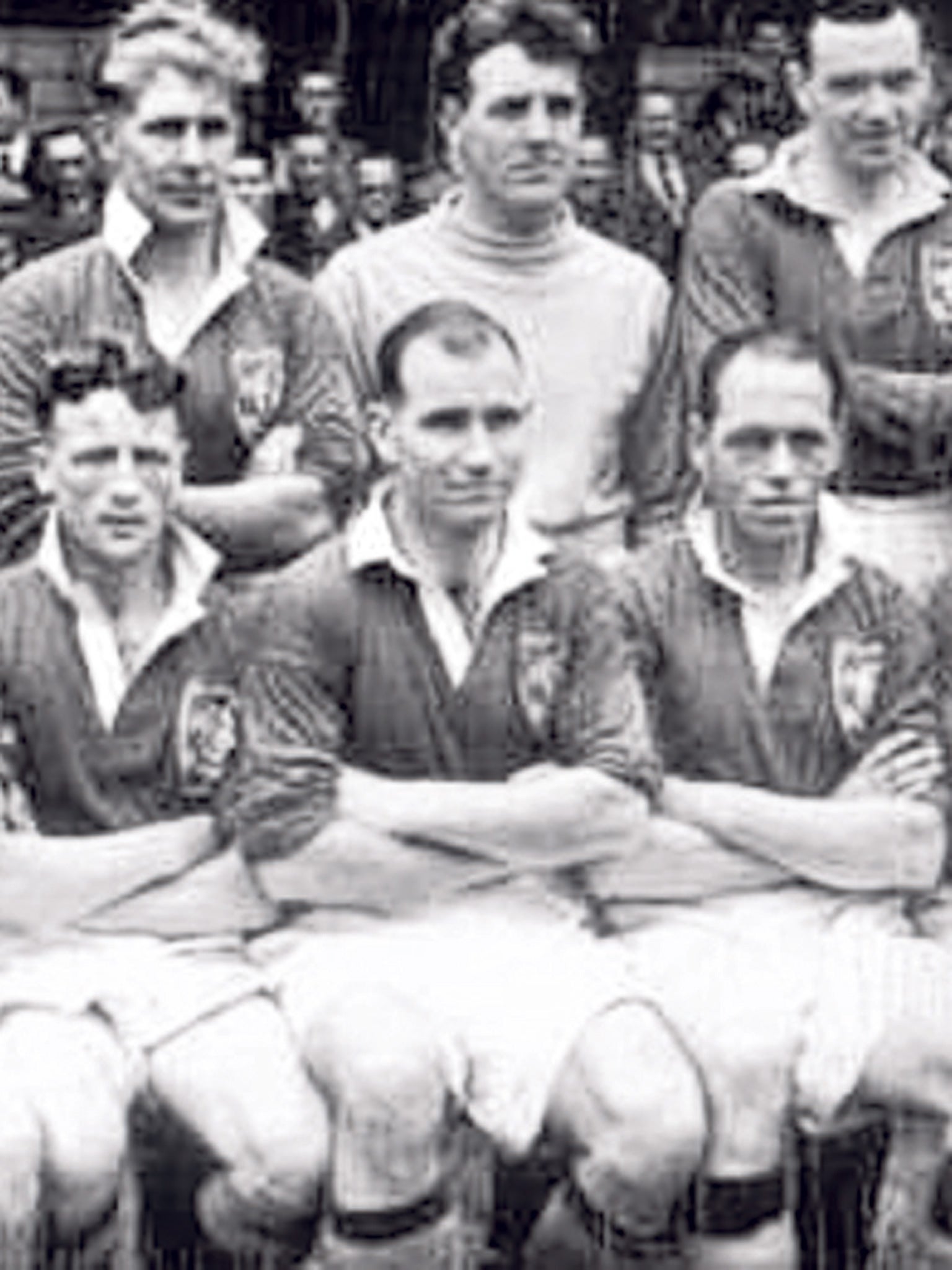Jim Patterson: 'The Goal King of Queen of the South'

Your support helps us to tell the story
From reproductive rights to climate change to Big Tech, The Independent is on the ground when the story is developing. Whether it's investigating the financials of Elon Musk's pro-Trump PAC or producing our latest documentary, 'The A Word', which shines a light on the American women fighting for reproductive rights, we know how important it is to parse out the facts from the messaging.
At such a critical moment in US history, we need reporters on the ground. Your donation allows us to keep sending journalists to speak to both sides of the story.
The Independent is trusted by Americans across the entire political spectrum. And unlike many other quality news outlets, we choose not to lock Americans out of our reporting and analysis with paywalls. We believe quality journalism should be available to everyone, paid for by those who can afford it.
Your support makes all the difference.With an appropriate mixture of affection, respect and something approaching reverence, Jim Patterson was dubbed "The Goal King of Queen of the South" – and, even in death, there's no chance that he'll be deposed from his throne any time soon.
The strapping, rumbustious centre-forward, the Doonhamers' spearhead for nearly a decade and a half in the middle years of the 20th century, totalled 251 goals for his only senior club. That's more than the next two men on the list of Palmerston Park sharpshooters put together – they are Patterson's old comrade Bobby Black, who died last summer, and modern marksman Andy Thomson – so the record is safe for the foreseeable future.
For all that he was a gentle, unassuming character away from the action, the Perthshire-born Patterson was a dauntingly formidable opponent for the men whose job it was to mark him. His speed, power and fearlessness were the stuff of local legend, but that told only half the story. He was blessed with the goalscorer's most priceless knack: a near-uncanny instinct for being in the right place to convert the opportunities created by his team-mates, who understood his strengths and played to them.
This was never more apparent than in the mid-1950s, when he was at the van of an exhilarating attack which also included wingers Black and Jackie Oakes and inside-forwards Jimmy McGill and Walter Rothera.
Patterson had been closely monitored by Queen of the South manager Jimmy McKinnell Jr before he was signed in 1949, yet the Doonhamers almost lost him to Manchester City. The Scottish club intended to recruit him when he had finished his national service, but then he went on trial to Maine Road and there seemed every likelihood that his future lay with the English giants.
However, he decided to remain north of the border, and he made his senior debut in a home League encounter with Dundee in November 1949. The season ended in despair, as Queen of the South dropped out of the top flight, where they had been ensconced since 1933; though there was some consolation in reaching the semi-finals of the Scottish Cup for the first time. They lost to Rangers at Hampden Park, but only after a replay, in which the underdogs perished courageously after a valiant struggle.
At this point, Patterson was operating as an inside-forward, with Billy Houliston wearing the No 9 shirt, and the pair were hugely influential as the Doonhamers bounced back at the first attempt, winning the Division B title on goal average – the preposterously complicated predecessor to goal difference as a means of splitting clubs on the same number of points – ahead of Stirling Albion. That season, too, they reached the last four of the Scottish League Cup before losing to League champions-elect, Hibernian.
For the next five seasons, Patterson scored heavily, particularly in 1955/56, when he registered 26 goals in 31 games as the Doonhamers led the table for a spell before subsiding to finish in sixth place. That proved a high point, with the Dumfries side declining to demotion in 1958-59; but thereafter, though by now in his thirties, Patterson remained a potent performer, gelling exhilaratingly with the thoroughbred English international schemer Ivor Broadis as promotion was missed by a point in 1959-60. Another League Cup semi- final defeat followed a year later.
However, the veteran was not finished; he formed a terrific frontline partnership with Neil Martin, which saw Queen of the South return to the top tier as runners-up to Clyde in the Second Division title race of 1961-62. A personal highlight of that campaign was his double hat-trick in a 7-1 annihilation of Cowdenbeath at Palmerston Park, and there were still goals in him as he helped the team to narrowly retain its status in 1962-63, his farewell season.
His admirers' only regret when Patterson retired that spring after 462 appearances was that he had never won a full Scottish cap, the nearest being an outing for his country against the Army in 1953. He had proved unable to unseat stars such as Hibernian's Lawrie Reilly and Willie Bauld of Hearts, but his stirring deeds over 14 years made his induction into the Doonhamers' Hall of Fame the merest of formalities.
James Patterson, footballer: born Luncarty, Perthshire 1928; played for Queen of the South 1949-63; died Dumfries 16 December 2012.
Join our commenting forum
Join thought-provoking conversations, follow other Independent readers and see their replies
Comments